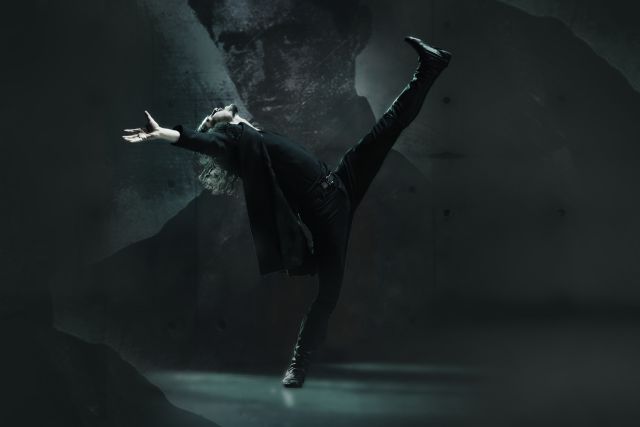29th May 2024 | 19:00 | Wednesday – Hangvilla, Main Auditorium
dance suite in 3 movements
“And I became a gentle flame…”
(Sándor Petőfi: Tired of slavery)
“Petőfi is still the most famous Hungarian poet abroad. He is the Hungarian favorite of the gods. He had everything to become a great poet: talent, history, fate. He lived for twenty-six years and left a world literature-size and class life-work behind that meant a turning point in the literature of his nation.” Béla G. Németh (1982)
During his short life Petőfi served in Gollner’s 48th infantry regiment; tutored in Pápa, met both success and failure under the name of Borostyán as a traveling actor, translated Béranger, Thomas Moore and first and foremost Shakespeare (Coriolanus – if played – is still played by his translation). He was a revolution in one person, and almost became a politician moving forward as a member of parliament…
He wrote nearly a thousand poems, of which 850 have survived for the after-ages. He uses the word “flame” in various combinations 150 times in these pieces. In addition to the casual meaning and the display of the levels and passion of love, his whip has a flaming swung, wine has a wave of flame, stars are flame roses, glory rides on a chariot of flame; sometimes he is carried away by the flames of enthusiasm, other times by the altar flame of love. Faith, bosom, words, gaze, pain, life are all flaming. Until he describes himself also as “flame groom” in „The Last Pittance”.
At the center of our evening are the contemporary musical pieces and ballet etudes choreographed to them, both inspired by these flame-poems.
LARK
(I hear a carol again)
The music displays the poet’s spiritual journey throughout four continuous movements, the stages of which are: revolutionary passion, disappointment in battles, finding redemption through love and poetry and the cathartic experience of emotions in an idyllic spring environment. Just like a tiny ray of spring light in the dark loneliness of incessant fights through which we find a way back to our entia for a moment. The poem is a bittersweet vision of a person separated from his home, his love and himself. Eventhough the musical piece focuses on Petőfi himself in many ways, the everyday heroes, that fought in the battles alongside the poet, also get a prominent role.
Dancers: Miriam Munno, Lotár Vincze, Róbert Kiss, Janka Nier, Diletta Ranuzzi, Francesco Totaro, Diletta Savini, Csongor Füzesi
composer: Dániel Lázár
koreográfus: Gergely Czár
THE FATE OF HUMANITY
A sort of one-line invocation or prologue left in the torso, found among Petőfi’s juvenilia. With its comma at the end of the line, waiting for the twin rhyme it inevitably calls for, suggests the sequel but it is being late and the poet’s words are stuck. Either because the outlined theme is so gigantic or because the fire has just swallowed the tindery material in its creator. On the one hand the piece is the state of inspiration, the uncontrolled drift of flow and on the other hand the struggle with ispiration and the exhaustion it results in. A bipolar story of moments of enthusiasm and degradation. A memento of the cyclical nature and struggles of everyday human life.
Dancers: Désirée Bazzani, Miriam Munno, Petra Bocsi, Róbert Kiss, Diletta Savini, Letizia Melchiorre, Adrienn Nyeste, Csongor Füzesi, Giordana Marzocchi
composer: Petra Szászi
choreographer: Laura Tóth
SONG OF THE DOGS – SONG OF THE WOLVES
The twin poems engage with human nature and indirectly with public life. One half of the people live their lives choosing safety while others act for change, leave their place for the unknown, for the idea of freedom. The contrast of the two poems provide a perfect dramaturgical root for the finished ballet music, in some ways there are even formal similarities between the poems and the music. The latter in a certain sense is closer to the world of operas as through the music it represents the inscape of the characters portrayed in the poems. It does not tell a story but reflects on the internal, spiritual processes.
Dancers: Désirée Bazzani, Miriam Munno, Lotár Vincze, Petra Bocsi, Janka Nier, Diletta Ranuzzi, Francesco Totaro, Letizia Melchiorre, Adrienn Nyeste, Csongor Füzesi
composer: Ádám Brandenburg
choreographer: Róbert Kiss
Narrator: József Kosztolányi
Dramaturge: Brigitta Szokolai
Lights: Dániel Szabó
Costume: Bianca Imelda Jeremias
Scenery design: Kázmér Tóth
Scenery implementation: Scabello
Director: Tamás Juronics
Partners:
Szeged Megyei Jogú Város Önkormányzata, Szegedi Nemzeti Színház, Kulturális és Innovációs Minisztérium, Nemzeti Kulturális Alap, Kortárs Balettért Alapítvány, Novotel Hotel – Szeged, CE Glass Industries, Busz Travel – Császár József, Hétkávézó, Pick Szeged Kézilabda, Palánta Salátabár, Szegedi Közlekedési Társaság, Porsche Szeged, Porsche M5, Skechers Central Eastern Europe
Media partners: Rádió88, Marie Claire, Kultúra.hu, Délmagyarország
Tamás Juronics – artistic director
András Pataki – director
Photo: János Lakatos an Zoltán Tarnavölgyi
Duration: 45 minutes
